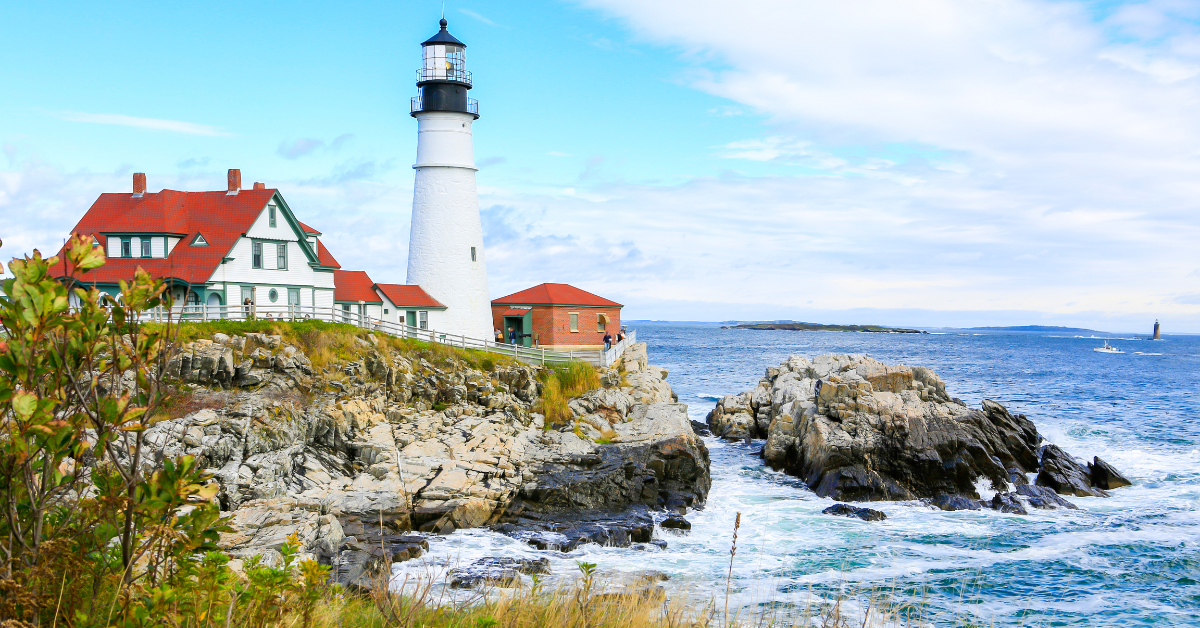Maine, located in the northeastern United States, is a state renowned for its serene landscapes and peaceful lifestyle.
Although the expression “麺因州” sometimes appears, it is a Chinese phonetic transcription, not an official Japanese usage.
In this article, we explore the correct Japanese representation of Maine, the image Japanese people have of the state, and its cultural and athletic appeal.
Does Maine Have a Kanji Representation?
In Japanese, there is no official Kanji representation for the state of Maine. The English word Maine is simply rendered phonetically as “メイン” in Katakana.
Meanwhile, in Chinese, the pronunciation is represented using characters, resulting in forms such as “麺因州” or “緬因州.” These characters are phonetic approximations and have no semantic meaning. Thus, they are not proper in Japanese usage.
| Language | Representation | Notes |
|---|---|---|
| Japanese | メイン州 | Official Katakana notation |
| English | Maine | Original English name |
| Chinese | 麺因州・緬因州 | Phonetic transcription |
| Korean | 메인주 | Phonetic Hangul spelling |
In summary, “麺因州” is a Chinese transcription and not suitable for Japanese writing.
In all Japanese newspapers, academic texts, and official documents, the name is consistently written in Katakana as “メイン州.”
The Natural and Cultural Appeal of Maine
Maine is a treasure trove of nature, surrounded by vast forests and the Atlantic Ocean. It is famous for its autumn foliage and lobster fishing, and it is one of the most popular scenic destinations in the United States.
The charm of Maine can be summarized as follows:
| Category | Description | Characteristics |
|---|---|---|
| Natural Environment | Forests, lakes, coastlines | About 90% of the state is forested |
| Food Culture | Lobster, blueberries, maple syrup | Strong tradition of local and sustainable food |
| Tourist Attractions | Acadia National Park, Portland Head Light | Blend of nature and history |
| Local Character | Kind, environmentally conscious | Strong sense of community |
The harmony between tranquility and nature is what truly defines the culture of Maine.
The Sporting Spirit of Maine
Beyond its scenic beauty, Maine has a vibrant sports culture. Its changing seasons—warm summers and snowy winters—shape a lifestyle where sports and nature coexist.
| Season | Main Sports | Characteristics |
|---|---|---|
| Spring | Marathon, cycling | Many outdoor community races |
| Summer | Sailing, canoeing, fishing | Water-based sports using the coast and lakes |
| Autumn | Hiking, trekking | Popular outdoor recreation among fall colors |
| Winter | Skiing, snowboarding, ice hockey | Major winter competitions and events |
Among these, ice hockey holds a special place in local culture, with high school and college teams competing in spirited state tournaments. Portland is also home to the professional team Maine Mariners, beloved by residents.
Additionally, many locals are passionate fans of the Boston Red Sox, and baseball games are cherished as family bonding activities across the state.
The Image Japanese People Have of Maine
For many Japanese, Maine represents “a peaceful America” far removed from urban bustle. The state’s natural setting, friendly residents, and calm lifestyle resonate deeply with Japanese sensibilities.
The general impressions can be summarized as follows:
| Image | Description |
|---|---|
| Peaceful Lifestyle | Tight-knit communities with mutual support |
| Harmony with Nature | Sustainable living surrounded by forests and the sea |
| Literary Atmosphere | Setting for Stephen King’s famous novels |
| Tourism Appeal | Foliage, lighthouses, and lobsters draw visitors |
Overall, Japanese people view Maine as a healing, heartwarming place, and interest in visiting or even relocating there has been slowly increasing.
Connections Between Maine and Japan
In recent years, academic, cultural, and tourism exchanges between Maine and Japan have grown. University partnerships and environmental education programs are particularly active, and the number of students studying Japanese in Maine is steadily rising. Likewise, many Japanese researchers visit Maine to study forest preservation, sustainability, and local development.
In the tourism sector, Maine has become a popular side destination from Boston or New York, with tours highlighting its autumn colors and historic lighthouses. Sports tourism—such as marathon and hiking events—also attracts more Japanese travelers every year.
Both regions share a similar spirit: a culture that values harmony between people and nature.
The Union of Sports and Nature
In Maine, sports are not merely for entertainment but are a cultural bridge connecting people and nature.
Local marathons bring together not only runners but also residents, who participate as volunteers, creating a warm, communal atmosphere.
In winter, ski resorts host educational programs where children can learn through outdoor activity, combining physical fitness with environmental awareness. These initiatives reflect Maine’s philosophy of “living in harmony with nature.”
Through sports, Maine cultivates community unity and a healthy lifestyle, offering lessons that could inspire rural revitalization efforts in Japan as well.
Conclusion
There is no Kanji version of “Maine” in Japanese—the correct way to write it is “メイン州” in Katakana. The expression “麺因州” is purely a Chinese phonetic transcription and should not be used in Japanese.
For Japanese people, Maine embodies tranquility, nature, and human warmth. Yet, beyond that calm image lies a dynamic culture rich in sports, education, and community life.
With its pristine wilderness, vibrant local culture, and balance between progress and preservation, Maine reminds us of the importance of harmony between humanity and the natural world.
For those seeking a slower, more authentic way of life, Maine offers a sense of peace and self-discovery that is truly timeless.






